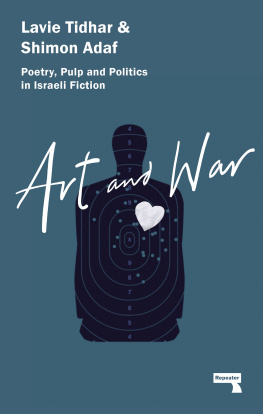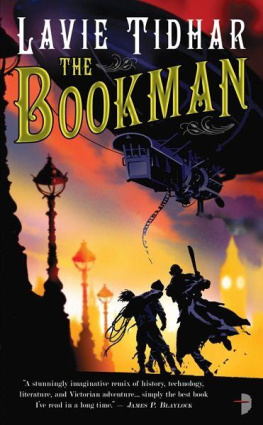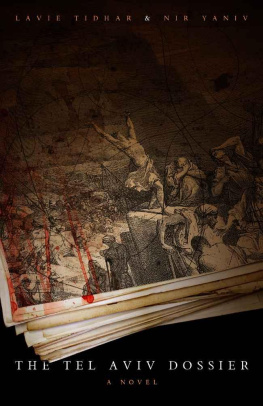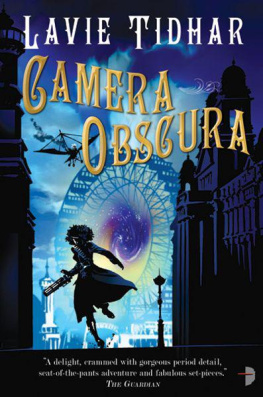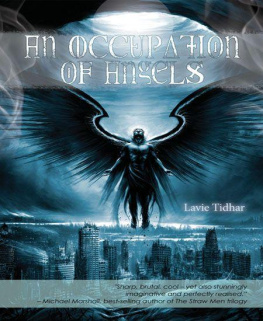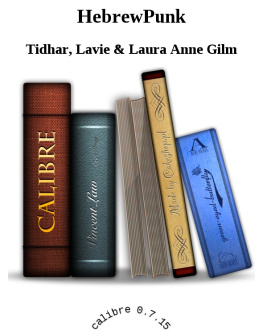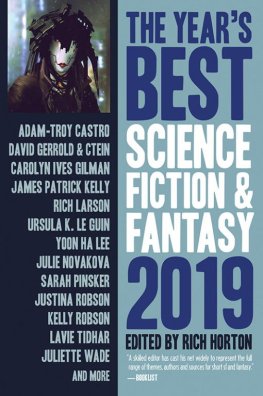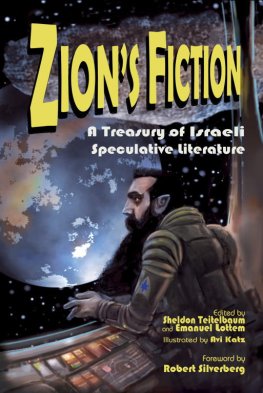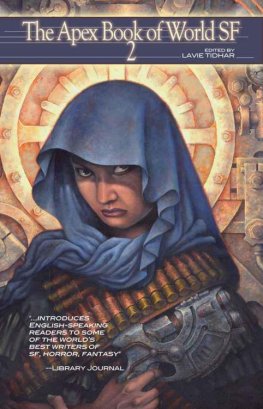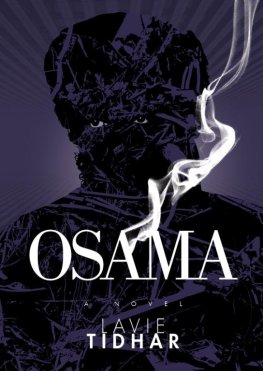Art and War
Art and War
Poetry,
Pulp and Politics
in Israeli Fiction
Lavie Tidhar
Shimon Adaf

Introduction
I first met Shimon Adaf five years ago, though I seem to recall seeing him, once, years before, when he was the bright young fiction editor for Keter Publishing the youngest editor ever to assume that position. He was not yet, then, Adaf the prize-winning poet and novelist, and I do not think that we were introduced.
In early 2010 I returned to live in Israel for a time. It so happened that I was asked to appear on a literary panel alongside Shimon the subject was, if I remember rightly, future visions of the Middle East, or something to that effect. I enjoyed arguing with him, and we continued the conversation in the nearby cafeteria, where it transpired that, though neither of us had read the others work, it so happened that we lived a mere five minute walk apart from each other, in Jaffa.
We agreed to do what writers are wont to do, which was to meet up and exchange books the one thing writers are not poor in. It didnt take me long to become a huge fan of this quietly spoken, fiercely intelligent writer, whose Sunburnt Faces kept me up reading all through the night, and whose novel Kfor seemed to me a genuine revelation, a staggering literary achievement that became an influence on my own future work.
For the next year wed meet up every so often in one of the bars or cafs near the vast flea market in Jaffa, where we continued carrying on our conversation: about books, writing, politics
Shimon and I grew up on opposite sides of the Israeli spectrum. I grew up in the north, on a kibbutz a sort of Zionist, socialist commune while Shimon grew up in the south, in Sderot, a poor town in the desert just five kilometres from Gaza, the son of religious parents who had emigrated from Morocco. My own family had come from Europe, one half Zionist idealists, one half Holocaust survivors. Shimon was destined to live the life of a great rabbi I was destined to become a farmer or a soldier, I suspect, though I would have made a poor job of either.
Instead, I went travelling (and never quite stopped) while Shimon became a budding musician in Tel Aviv. And yet, though our experiences growing up couldnt have been more different, they were more similar than not in many ways, and shared one abiding passion the translated American science fiction that was available to us at the time. As youthful readers, we devoured them all. As adults, we were both drawn to the same writers who utilised literature in strange and unsettling new ways.
In due course, I moved back to London, though Shimon and I continued to correspond by e-mail, and chat on Skype (those science fictional tools we always knew will be waiting for us in the future!). At some point I was able to help secure a small hardcover publication of Sunburnt Faces in its English translation (Shimons first novel to be published in English, but only, I hope, the first of many), and saw it launched in England in 2013, alongside my own The Violent Century. In preparation for that, I decided to interview Shimon, but the interview soon became another conversation, eventually published as The Convergence Between Poetry and the Fantastic.
At that point, I think, the idea for this book was firmly planted, in my mind at least. During the summer of 2014, we attempted to carry on the conversation as events in Israel took a violent turn. Both of us, I think, were too depressed then to continue; instead, we each wrote a short story (they are included here), which together constituted their own kind of dialogue.
A year later, we felt more ready to carry on, and this book is, finally, the result. I hope it will be of interest.
Lavie Tidhar
2015
PART ONE
Art and War
Lavie
Ive been thinking a lot recently about what we mean by a writing career or, more precisely, the arc of writing, the sort of meta-narrative thats made up of the gradual progression of everything you write. For instance, it seems to me that a lot of writers do their most ambitious, honest work early on. As though we have that one great burst thats then followed by drudgery, by routine. Heller with Catch-22 is a good example. One thing that struck me, a sort of motivation, is the idea of what happens if you die before writing that one book you should have written but didnt. There was a writer who died recently of cancer. He was known for his cancer he documented it, very movingly but what kept me awake at night was the thought that he never wrote the book his early promise might have suggested he would. And I cant honestly say why: he was a prolific short story writer, who then went on to have a string of novels out and they were, well, sort of mediocre. And then he died. And its really bothered me, that maybe you have that thought, Ill just write for now for the money, and then Ill be able to write that real book later on, but that later on never comes. The thought that you could get hit by a bus tomorrow, or get cancer, and have nothing to show for it.
I guess its partly why Ive resisted the easy path, in a way. Osama was the book I believed in, but no one was willing to publish it for a long time. A Man Lies Dreaming sounded like a bad joke it feels like a miracle to me that it came out, and I wasnt sure it would until three months before the publication date!
But at least I can say: Ive written those books, Ive done a handful of short stories I think are as good as anything out there if I get hit by a bus tomorrow I can diet with a clean conscience.
But Ive been struggling a lot with following up on A Man Lies Dreaming. Its the one book Im really happy with, and I just how do you follow something like that? Its not like I really know how I wrote it. I wish I did! I thought writing should get easier the more you do it, but it just seems to me to get harder. And I was struck by something, a line in the film Infamous, about Truman Capote. And Capote couldnt write anymore after In Cold Blood. Sandra Bullock plays Harper Lee, and Lee is interviewed for the camera and she says something like, Well, sometimes thats all there is.
That really stuck with me. And Lee, of course, never finished another book after To Kill A Mockingbird. I mean, how do you possibly follow that? And she talks, in the movie, about this idea that writers have to keep producing, keep writing, but why exactly is that? I often think of Philip Larkin, too, who, about three years before his death, woke up and said, There isnt anymore. The poetry was just gone.
(This was written before Go, Set A Watchman was published in July 2015, yet the statement remains true: Watchman is the earlier novel, the draft from which Mockingbird later emerged.)
So this worries me. I think about it a lot. Its harder for me to write. And I keep wondering if its worth it. Do I have anything left to say? Can I rediscover my anger? I think Im motivated by anger, more than anything. Though I cant imagine running out of things to be angry about!
But what I wanted to ask you, is about your own career progression. Your first novel, Two Days and a Mile Before Sunset, is quite accessible. Its got flashes of the weirdness that Id argue characterises your later work, but its essentially a literary, contemporary detective novel. Its about the music scene in 90s Tel Aviv. Its very relatable for an Israeli reader. And your third novel,

